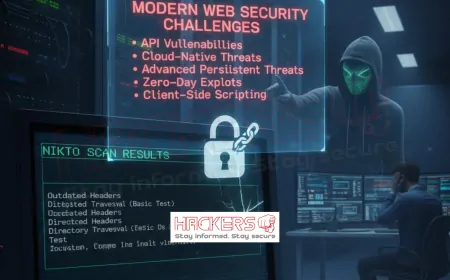CC vs CCSP | Which Certification Should You Choose First for a Cybersecurity Career?
Starting a career in cybersecurity can feel like stepping into a maze of certifications, each promising to unlock exciting opportunities. Two standout options from (ISC)² are the Certified in Cybersecurity (CC) and the Certified Cloud Security Professional (CCSP). The CC is an entry-level certification designed to kickstart your journey, while the CCSP is a more advanced credential focused on securing cloud environments. Choosing the right one depends on your experience, career goals, and the skills you want to develop. This blog compares the CC and CCSP to help beginners and aspiring professionals decide which to pursue first, breaking it down in a clear, approachable way.

Table of Contents
- What Is the Certified in Cybersecurity (CC)?
- What Is the Certified Cloud Security Professional (CCSP)?
- Key Differences Between CC and CCSP
- Who Should Choose the CC?
- Who Should Choose the CCSP?
- Career Impact of CC vs. CCSP
- CC vs. CCSP: A Side-by-Side Comparison
- Which Certification Should You Choose First?
- Tips for Preparing for CC or CCSP
- Conclusion
- Frequently Asked Questions (FAQs)
What Is the Certified in Cybersecurity (CC)?
The Certified in Cybersecurity (CC) is (ISC)²’s entry-level certification, launched to help newcomers break into cybersecurity. It covers five foundational domains: security principles, business continuity, access control, network security, and security operations. The CC is designed for those with little to no IT experience, requiring no prior work experience to take the exam. The exam includes 100 multiple-choice questions, lasts two hours, and requires a score of 700 out of 1000 to pass. It’s a perfect starting point for beginners or career changers looking to build a solid cybersecurity foundation.
What Is the Certified Cloud Security Professional (CCSP)?
The Certified Cloud Security Professional (CCSP) is an advanced certification from (ISC)², focused on securing cloud environments. It covers six domains: cloud concepts and architecture, data security, platform and infrastructure security, application security, security operations, and legal/compliance issues. The CCSP is vendor-neutral, meaning its skills apply across platforms like AWS, Azure, and Google Cloud. The exam has 125 multiple-choice questions, lasts four hours, and requires a score of 700 out of 1000 to pass. Candidates need five years of IT experience, including three in security and one in a CCSP domain, making it suited for experienced professionals.
Key Differences Between CC and CCSP
The CC and CCSP serve different purposes in a cybersecurity career. Here’s how they differ:
- Experience Level: CC requires no prior experience, while CCSP demands five years of IT experience.
- Focus: CC covers broad cybersecurity fundamentals, while CCSP specializes in cloud security.
- Exam Difficulty: CC is shorter (2 hours, 100 questions) and less complex than CCSP (4 hours, 125 questions).
- Career Stage: CC targets entry-level roles, while CCSP prepares you for advanced roles like cloud security engineer.
- Scope: CC introduces general concepts like network security, while CCSP dives deep into cloud-specific challenges like shared responsibility models.
Who Should Choose the CC?
The CC is ideal for those new to cybersecurity or looking to transition into the field. It’s a great fit for:
- Recent graduates or students exploring cybersecurity careers.
- Career changers from non-technical fields, like business or education.
- IT professionals with minimal security experience, such as helpdesk technicians.
- Anyone seeking a foundational credential to build confidence and skills.
Why Choose CC: It’s accessible, requires no experience, and provides a broad introduction to cybersecurity, making it a stepping stone to advanced certifications like CCSP.
Who Should Choose the CCSP?
The CCSP is designed for professionals with some IT and security experience who want to specialize in cloud security. It’s ideal for:
- Security analysts looking to focus on cloud environments.
- Cloud administrators or engineers seeking to deepen security expertise.
- IT managers overseeing cloud migrations or compliance efforts.
- Consultants advising clients on secure cloud adoption.
Why Choose CCSP: It offers specialized skills for high-demand cloud security roles and is globally recognized for its rigor.
Career Impact of CC vs. CCSP
Both certifications open doors, but they target different career stages and roles:
- CC Career Impact: Prepares you for entry-level roles like security analyst, IT support specialist, or junior cybersecurity consultant. Salaries typically range from $60,000 to $90,000 annually.
- CCSP Career Impact: Qualifies you for advanced roles like cloud security engineer, architect, or compliance manager, with salaries ranging from $100,000 to $160,000 annually.
- Long-Term Growth: The CC builds a foundation for further certifications (e.g., CCSP, CISSP), while the CCSP positions you for leadership roles like Cloud Security Director.
CC vs. CCSP: A Side-by-Side Comparison
Here’s a detailed comparison to help you decide:
| Aspect | CC | CCSP |
|---|---|---|
| Experience Required | None | 5 years (3 in security, 1 in cloud) |
| Focus | Cybersecurity fundamentals | Cloud security |
| Exam Details | 100 questions, 2 hours | 125 questions, 4 hours |
| Target Roles | Security analyst, IT support | Cloud security engineer, architect |
| Vendor-Neutral? | Yes | Yes |
The CC is easier to access for beginners, while the CCSP targets specialized, high-demand roles.
Which Certification Should You Choose First?
Your choice depends on your experience and goals:
- Choose CC First If: You’re new to cybersecurity, lack IT experience, or want a broad foundation before specializing. The CC is a low-barrier entry point that builds confidence and opens doors to entry-level roles.
- Choose CCSP First If: You have IT/security experience and want to focus on cloud security, a booming field. The CCSP is ideal if you’re ready for advanced roles and can meet the experience requirements.
- CC as a Stepping Stone: Many professionals start with the CC to gain foundational knowledge, then pursue the CCSP after building experience. This path is great for career changers or those early in their IT journey.
For most beginners, starting with the CC makes sense, as it’s more accessible and prepares you for further certifications like the CCSP.
Tips for Preparing for CC or CCSP
Whether you choose CC or CCSP, preparation is key. Here’s how to succeed:
- For CC: Use (ISC)²’s free online training, practice exams, and study guides. Platforms like Cybrary offer beginner-friendly courses. Aim for 1–3 months of study.
- For CCSP: Combine (ISC)²’s study guide, online courses (e.g., Pluralsight, Udemy), and hands-on labs (e.g., AWS Free Tier). Plan for 3–6 months of study.
- General Tips: Take practice exams to familiarize yourself with question styles, join (ISC)² communities for support, and create a study schedule to stay on track.
Conclusion
Choosing between the CC and CCSP depends on where you are in your cybersecurity journey. The CC is a fantastic starting point for beginners, offering a broad foundation and entry-level opportunities without requiring experience. The CCSP, with its focus on cloud security, is ideal for experienced professionals aiming for high-demand, specialized roles. Both certifications, backed by (ISC)², are globally recognized and can propel your career forward. By starting with the CC and progressing to the CCSP, you can build a strong, future-proof career in cybersecurity, tailored to your goals and experience level.
Frequently Asked Questions (FAQs)
What is the CC certification?
It’s an entry-level cybersecurity certification from (ISC)², covering fundamentals like network security and access control.
What is the CCSP certification?
It’s an advanced certification from (ISC)², focusing on cloud security across six domains, requiring IT experience.
Who should take the CC?
Beginners, career changers, or those with minimal IT experience seeking a cybersecurity foundation.
Who should take the CCSP?
Professionals with IT/security experience aiming to specialize in cloud security roles.
Does the CC require experience?
No, it’s designed for beginners with no prior IT or security experience.
What experience is needed for the CCSP?
You need five years of IT experience, including three in security and one in a CCSP domain.
Is the CC exam easier than the CCSP?
Yes, the CC is shorter (2 hours, 100 questions) and less complex than the CCSP (4 hours, 125 questions).
What jobs can I get with the CC?
Entry-level roles like security analyst, IT support specialist, or junior consultant.
What jobs can I get with the CCSP?
Advanced roles like cloud security engineer, architect, or compliance manager.
Are both CC and CCSP vendor-neutral?
Yes, both apply across platforms, unlike AWS or Azure-specific certifications.
Can I take the CCSP without the CC?
Yes, if you meet the CCSP’s experience requirements, you don’t need the CC first.
How long does it take to prepare for the CC?
Typically 1–3 months, depending on your study habits.
How long does it take to prepare for the CCSP?
Usually 3–6 months, depending on your experience and study schedule.
What is the passing score for both exams?
Both require 700 out of 1000 points to pass.
Can I take the CC or CCSP exam online?
Yes, (ISC)² offers online proctored exams, but check their website for details.
How much does the CC exam cost?
It’s around $125, but check the (ISC)² website for current pricing.
How much does the CCSP exam cost?
It’s around $599, but confirm with (ISC)² for current pricing.
Can the CC lead to the CCSP?
Yes, the CC builds a foundation, making it easier to pursue the CCSP later.
Which industries value these certifications?
Tech, finance, healthcare, and government value both CC and CCSP professionals.
Where can I learn more about CC and CCSP?
Visit www.isc2.org for details on both certifications, exams, and resources.
What's Your Reaction?










































































